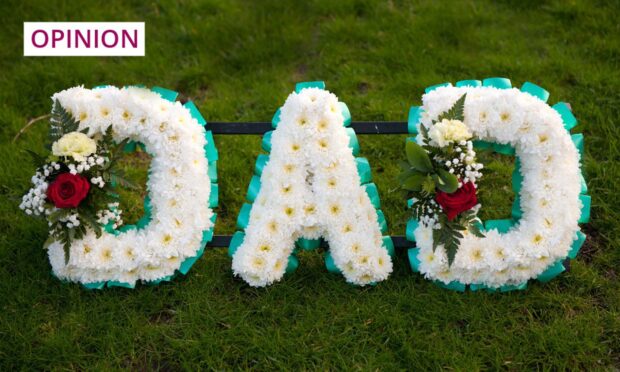As a long-term Inverness evacuee, I rely – more than many do, I believe – on social media to keep me up to date with events in my Heimat.
It goes way beyond Facebook giving me the score of an Inverness Caley game I cannot attend, road conditions for a journey I cannot drive, or the weather forecast for a visit I cannot make. And, for me, the app has long since passed being merely the means of looking at pictures of your dog, your dinner, or your dog’s dinner. Facebook now is concurrently a forecast of events and a Tardis taking me back in time.
If you’ll indulge this middle-ager, my dashboard is crammed with Facebook groups where I, and many like me, can worship at the altar of all things home – while I stand at the mantelpiece, all dewy-eyed, glass in hand, and reminisce.
But there are some pages I will admit to looking at through my fingers, because that middle age I mentioned just now does not come alone. Alongside the football updates, the pictures of old Inverness, the AS and ST number plates, the Inverness High School reunions and the harbour branch line interest group, my list of favourites includes the town’s undertakers.
I suppose being the product of parents much older than those of my contemporaries, it was drummed into me that respect extended, and indeed was multiplied, to those who had passed away. My father had fought in the war and my mother lived through it. Maybe it was that. Of course, they survived decades before the internet, and the notion of Facebook would have been dismissed scornfully by my father in the same way as pop music, long hair and English beer were.
Too many young men are dying before their time
It is usually worst on a Monday morning when, after a busy weekend, the undertakers upload their Facebook updates. I groan when I see one with “three new posts” and open the page with huge trepidation, because there is every chance I will know one or more of the trio who have just passed.
If they had a long life then I suppose that is good, but when you see the family asking for donations in lieu of flowers to such and such a charity, you know the illness the departed had bravely borne. As is the way with social media, these posts are accompanied by photographs of the person in question, and we can see what readers of a newspaper death notice cannot.
Suicidal thoughts can happen at any time. They might be constant or they might come and go.
That’s why it’s important to create a safe plan, which can include:
🟡 Recognising warning signs
🟡 List coping strategies
🟡 Create a list of close contactshttps://t.co/0omYsYWatQ pic.twitter.com/Oi0AoU4GHA— SAMH (@SAMHtweets) September 13, 2023
More troubling even than reading about the death of someone I knew, or who is younger or not much older than I, is the all too frequent trend recently of young men passing long before their time. When the family’s Facebook announcement states that, instead of flowers, donations can be made to a mental health charity, the sad story is complete.
More often than not, the face beaming out of the post belongs to a young man, a father and son, a brother and uncle, who loved and was loved, and it is heartbreaking to see because the photographed smile hides the truth.
We should always be kind
In July, I was fortunate to receive the OBE from King Charles. I chose Windsor Castle over Buckingham Palace for the investiture, because that is the town of my birth. My mother took me there many times as a child, and we always went via Slough, where we changed trains. I remember watching excitedly as expresses thundered through the station while we waited on the platform.
On my summer visit this year, my first for decades, I noticed that the express platforms were fenced off. When I asked a member of staff why this was, he told me that too many people were using the station to take their own lives – and they were mostly young men.
When that Inverness Facebook page informs me that, yet again, the Kessock Bridge is closed because of an ongoing incident, I read with disappointment the comments made by irate motorists who face nothing worse than going home to a cold dinner.
In all probability, we will never know the full story behind why someone would feel that they had no option left other than to take their life
That ongoing incident will regularly involve someone whose psychopomp has reached out, and who has found themselves at a time in their life when they can take no more. Then, it may well be their face smiling at me from the undertakers’ Facebook post, and their heartbroken family asking for donations to charity.
Is there too much pressure on young men? Does the same Facebook demand that they are more? Happily together with someone? Have more money? A better job? A bigger house? A faster car?
In all probability, we will never know the full story behind why someone would feel that they had no option left other than to take their life, which reinforces my view that, in an age when we can be pretty well anything we want, we should always be kind.
- If you are struggling with your mental health or experiencing suicidal thoughts, you can call Samaritans for free at any time on 116 123
Mike Edwards OBE was the face of the evening news on STV for more than 25 years and is a published author, a charity trustee and a serving Army Reservist

Conversation